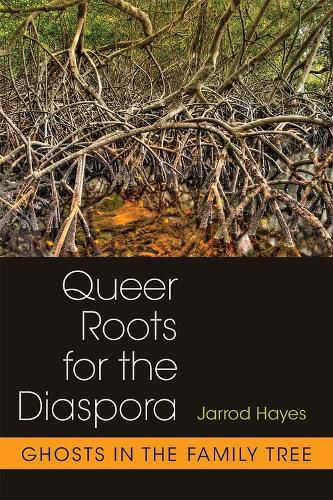Readings Newsletter
Become a Readings Member to make your shopping experience even easier.
Sign in or sign up for free!
You’re not far away from qualifying for FREE standard shipping within Australia
You’ve qualified for FREE standard shipping within Australia
The cart is loading…






As a way of understanding identity, the concept of rootedness hasincreasingly been subjected to acerbic political and theoretical critiques.Politically, roots narratives have been criticized for attempting to policeidentity through a politics of purity-excluding anyone who doesn’t sharethe same narrative. Theoretically, a critique of essentialism has led toa suspicion against essence and origins regardless of their politicalimplications.
The central argument of Queer Roots for the Diaspora is that, in spiteof these debates around the concept of roots, ultimately the desire forroots contains the roots of its own deconstruction. The book considersalternative root narratives that acknowledge the impossibility of returningto origins with any certainty; welcome sexual diversity; acknowledge theirown fictionality; reveal that even a single collective identity can be rootedin multiple ways; and create family trees haunted by the queer otherspatrilineal genealogy seems to marginalize.
The roots narratives simultaneously assert and question rooted identitieswithin a number of diasporas-African, Jewish, and Armenian. By lookingat these together, one can discern between the local specificities of anysingle diaspora and the commonalities inherent in diaspora as a globalphenomenon. This comparatist, interdisciplinary study will interestscholars in a diversity of fields, including diaspora studies, postcolonialstudies, LGBTQ studies, French and Francophone studies, Americanstudies, comparative literature, and literary theory.
$9.00 standard shipping within Australia
FREE standard shipping within Australia for orders over $100.00
Express & International shipping calculated at checkout
As a way of understanding identity, the concept of rootedness hasincreasingly been subjected to acerbic political and theoretical critiques.Politically, roots narratives have been criticized for attempting to policeidentity through a politics of purity-excluding anyone who doesn’t sharethe same narrative. Theoretically, a critique of essentialism has led toa suspicion against essence and origins regardless of their politicalimplications.
The central argument of Queer Roots for the Diaspora is that, in spiteof these debates around the concept of roots, ultimately the desire forroots contains the roots of its own deconstruction. The book considersalternative root narratives that acknowledge the impossibility of returningto origins with any certainty; welcome sexual diversity; acknowledge theirown fictionality; reveal that even a single collective identity can be rootedin multiple ways; and create family trees haunted by the queer otherspatrilineal genealogy seems to marginalize.
The roots narratives simultaneously assert and question rooted identitieswithin a number of diasporas-African, Jewish, and Armenian. By lookingat these together, one can discern between the local specificities of anysingle diaspora and the commonalities inherent in diaspora as a globalphenomenon. This comparatist, interdisciplinary study will interestscholars in a diversity of fields, including diaspora studies, postcolonialstudies, LGBTQ studies, French and Francophone studies, Americanstudies, comparative literature, and literary theory.